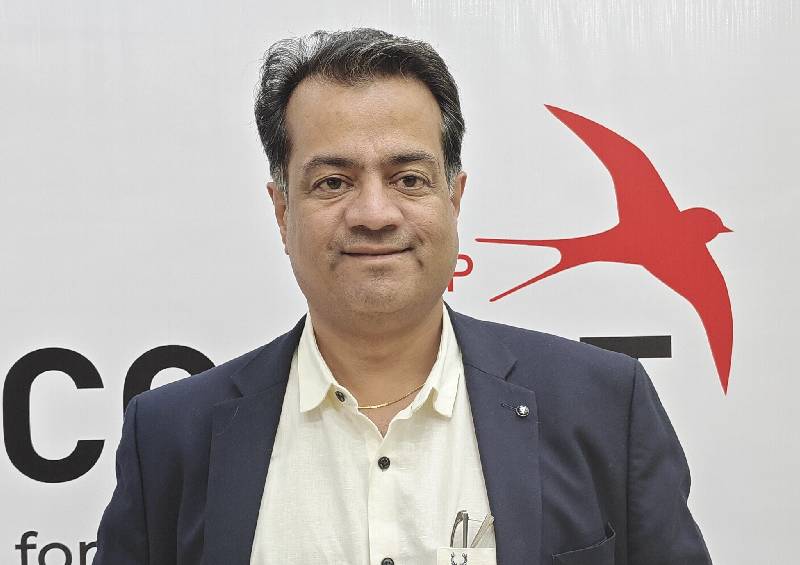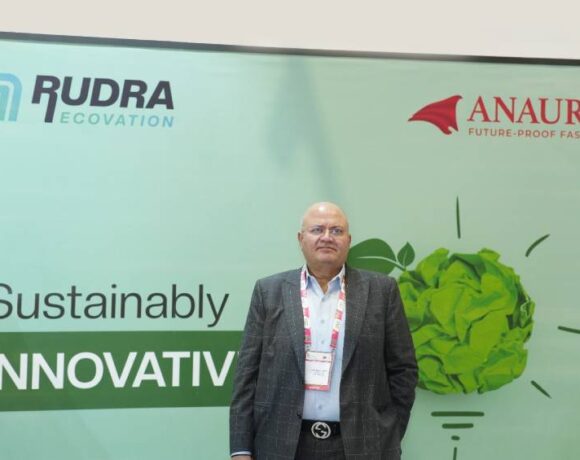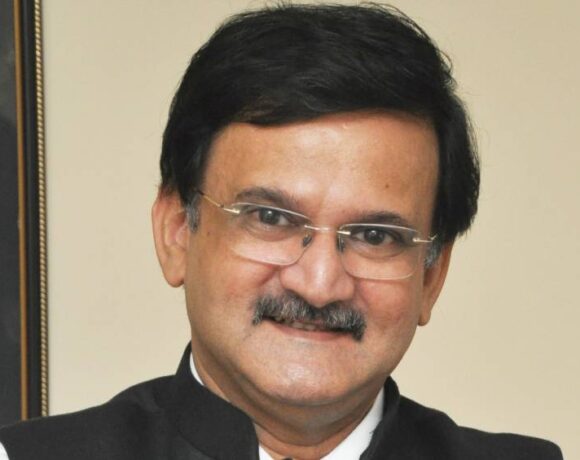Indian Textile Industry Has Evolved Tremendously And Our Companies Are Now Capable of Competing With Top International Brands: Anil Jadhav

The textile and chemical industries are facing increasing global regulations and compliance challenges, making certifications a critical aspect of business operations. At Bharat Tex 2025, Anil Jadhav shared insights into how the company assists businesses in achieving key certifications and meeting stringent sustainability standards.
EcoCert, a French company with a strong presence in India, specializes in organic certification across multiple sectors, including textiles, food and cosmetics. “Apart from food, which is our major certification business, textiles form our second-largest portfolio,” Jadhav explained. For textiles, EcoCert primarily offers GOTS (Global Organic Textile Standard) certification and Textile Exchange schemes, ensuring that companies meet internationally recognized sustainability benchmarks.
Beyond certification, the company has expanded its services through strategic acquisitions. “We acquired E&H, a training and consultancy firm, and Transitions, another consultancy company, to strengthen our expertise in guiding businesses towards compliance and sustainability,” Jadhav added.
With evolving sustainability regulations in major markets like the EU, US, and India, companies need to stay ahead of compliance requirements. Jadhav noted that Indian textile companies are already well-aligned with these standards. “The knowledge Indian companies have about requirements and standards is much better than what I have seen outside India,” he said. However, he believes that compliance expectations will only increase. “In the future, there will be a greater focus not just from brands, but also from governments and institutions on social and environmental aspects of production.”
One of the biggest hurdles for the textile supply chain is the shortage of trained manpower and high employee turnover. “The biggest challenge for companies is the movement of people within the industry,” Jadhav pointed out. Frequent job changes mean that businesses struggle to maintain a well-trained workforce, impacting their ability to meet quality and certification standards.
To tackle this, EcoCert has intensified its training and capacity-building efforts. “We are now focusing more on training, ensuring that industry professionals are well-equipped to handle compliance and sustainability requirements,” he emphasized.
At Bharat Tex, EcoCert aimed to educate visitors about certification processes and sustainability compliance. “Many of our existing clients visited our pavilion, but some were unaware of the full range of services we offer,” Jadhav said. Additionally, the company engaged with industry players unfamiliar with the role of third-party certification bodies. “We don’t own the standards—GOTS and Textile Exchange do. We are one of the authorized certification bodies ensuring companies adhere to these global benchmarks.”
Jadhav expressed his appreciation for Bharat Tex, calling it a much-needed initiative for India’s textile sector. “I consider this event very late—it should have started at least 10-15 years ago,” he remarked. Comparing it to global trade fairs, he noted that India lacked a large-scale textile exhibition until now. “The Indian textile industry has evolved tremendously, and our companies are now capable of competing with top international brands.”
However, Jadhav believes that India still needs to shift from exporting raw materials to value-added products. “India has long been a supplier of yarn and fabric to Bangladesh and other countries. Instead, we should focus on exporting finished, high-value products to Europe and America,” he asserted.
As the textile industry moves towards greater sustainability and compliance, EcoCert India remains at the forefront, helping companies navigate the complex certification landscape and drive meaningful change.














